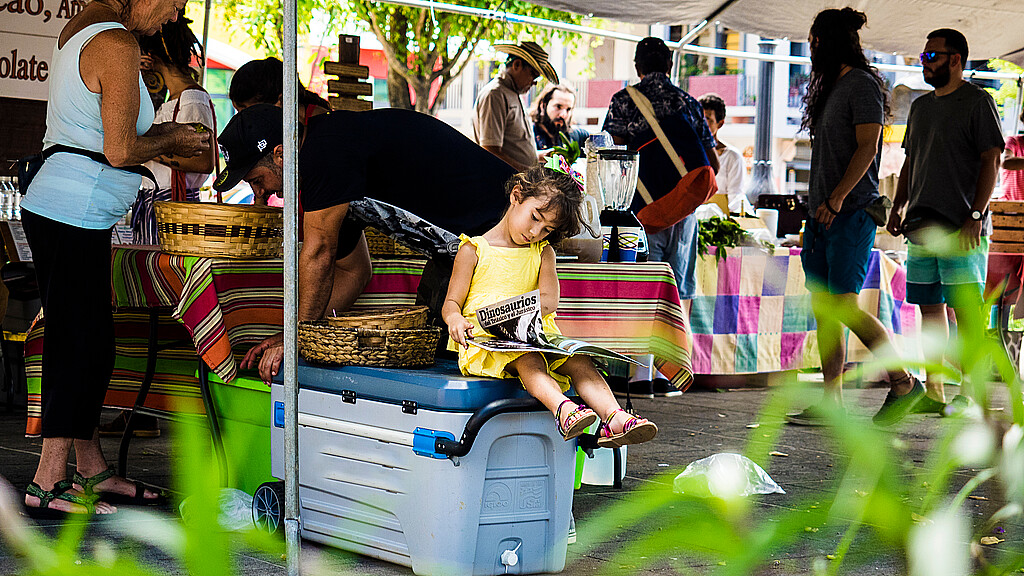Health
Puerto Rico teachers demand earlier school hours to protect students from afternoon heatwave
The Caribbean island’s school board shut down the school system last Friday as a safety measure to prepare for the unrelenting heat

September 12, 2023 8:46am
Updated: September 12, 2023 8:46am
Puerto Rican school board authorities shut down classes as on Friday as heat advisories and record-breaking temperatures streaked across the Caribbean island.
Puerto Rico’s Dept. of Education announced classes would be suspended on Friday as a safety measure to protect students and give administrators an opportunity to get ready for the upcoming heat wave.
The National Weather Service said that temperatures in San Juan could feel as hot as 114 degrees Fahrenheit this week.
Eighty three percent of Puerto Rican teachers – from a Telemundo poll of 2,500 – said they did not feel they had the proper air conditioning in their classrooms to endure the heat.
Half of the heat related crises reported around the island have also come from public schools, the Telemundo poll showed.
Puerto Rico has been no stranger to heat this year. This summer, records was broken almost every day on the tropical island. Puerto Rican authorities reported a record 47 nights with temperatures as high as more than 80 degrees Fahrenheit.
Last month was Puerto Rico’s hottest August since the island began keeping temperature records, according to San Juan’s National Weather Service in.
As a result, the AMPR (Puerto Rico Teachers Association) has supported a change in school hours to allow students to be released earlier before the heat of the day peaks.
The Puerto Rican Department of Education has said it is exploring its options, among them, satisfying the teacher’s demands to change school hours.
According to the teacher’s association, letting students out early is not an unconventional practice. It “is a measure that has been used in several states of the United States,” said AMPR’s vice president Raúl González, said in a Thursday news conference last week outside a San Juan elementary school.
While the Caribbean island continues to endure the tropical heatwave spike, other places in the continental United States, even in the northeast are also enduring shocking temperatures.
Schools in Connecticut, Maryland, Pennsylvania, and New Jersey released students early this week because of extreme heat.
One source who spoke to NBC Telemundo in Puerto Rico said the heat was so unbearable it was literally making children sick.
“When our kids get sick, they call us,” said Madelie Rivera, whose three grandchildren attend the Santiago Iglesias Pantín elementary school in San Juan. “But why? Because there are no fans, there is no air conditioning, there is nothing.”
Their concerns may not be unfounded, however.
The U.S. Environmental Protection Agency reports that children are more at risk to get sick from high temperatures than adults. This is because they lose fluid faster than adults, placing them at quicker risk to get dehydrated.
The Puerto Rican Department of Education said it is combatting the problem by investing $1.4 million in purchasing 21,000 fans for schools, and will distribute the cooling tools along with water with filter replacements.
The island’s DOE has also adding more liquids and fresh fruits to school menus, and changed the school dress code, permitting students to wear Bermuda shorts.
Many of the island’s public schools have had air conditioning problems because of their systems shutting on and off amid Puerto Rico’s reoccurring blackouts, according to parents and teachers and parents.
Puerto Rico's electrical power grid has not been completely rebuilt after hurricanes Maria and Fiona destroyed it in 2017 and 2022, respectively.
Last month, Gov. Pedro Pierluisi vetoed a bill aimed at guaranteeing air conditioning systems for all public schools.
Pierluisi’s spokeswoman, Sheila Angleró, told The Associated Press that any proposal that will have “significant fiscal impact” needs to undergo a budget analysis from the island’s legislature.
This because a requirement as the island continues to wade its way through the most significant municipal bankruptcy in U.S. history.







